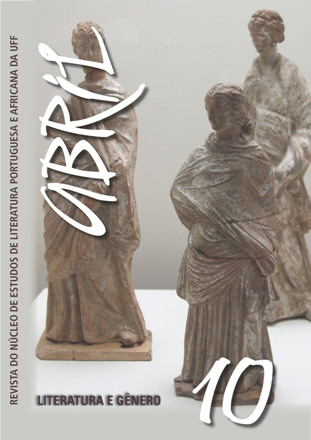Emancipação, ética e justiça na relação entre esposas e maridos de Portugal, Brasil e Cabo Verde
DOI:
https://doi.org/10.22409/abriluff.v5i10.29683Palavras-chave:
emancipação, ética, justiça, alteridadeResumo
O artigo analisa a tentativa de emancipação do Eu e a morte como resposta do/ao Outro na relação matrimonial, representada nos textos “Marido”, da portuguesa Lídia Jorge; “A moça tecelã”, da brasileira Marina Colasanti e “Foram as dores que o mataram”, da cabo-verdiana Dina Salustio. As representações da violência do homem/marido/opressor e da mulher/esposa/oprimida serão atravessadas pela proposta filosófico-ético-religiosa de Lévinas, que defende a sociabilidade com primazia no Outro como Rosto, no sentido de encontrar vestígios de motivação ética e de justiça nos fatos ficcionalizados.Downloads
Downloads
Publicado
Edição
Seção
Licença
Autorizo a Revista Aabril - NEPA/UFF a publicar o artigo que ora submeto, de minha autoria/responsabilidade, caso seja aceito para publicação online. Declaro, ainda, que esta contribuição é original, que não está sendo submetida a outro editor para publicação, e assino a presente declaração como expressão da verdade.
Os trabalhos publicados no espaço virtual da Revista Abril serão automaticamente cedidos, ficando os seus direitos autorais reservados à Revista Abril. Sua reprodução, total ou parcial, é condicionada à citação dos autores e dos dados da publicação.

A Revista Abril utiliza uma Licença Creative Commons - Atribuição-NãoComercial 4.0 Internacional (CC BY-NC 4.0).









